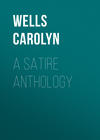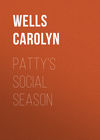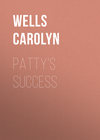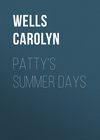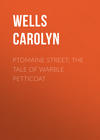Kitabı oku: «A Satire Anthology», sayfa 4
Yazı tipi:
FROM “THE EPISTLE TO DR. ARBUTHNOT”
“SHUT, shut the door, good John!” fatigued I said;
Tie up the knocker; say I’m sick, I’m dead.
The dog-star rages! nay, ’tis past a doubt,
All Bedlam, or Parnassus, is let out;
Fire in each eye, and papers in each hand,
They rave, recite, and madden round the land.
What walls can guard me, or what shades can hide?
They pierce my thickets, through my grot they glide.
By land, by water, they renew the charge;
They stop the chariot, and they board the barge.
No place is sacred, not the church is free;
Ev’n Sunday shines no Sabbath-day to me;
Then from the Mint walks forth the man of rhyme,
Happy to catch me – just at dinner-time.
Is there a parson much bemus’d in beer,
A maudlin poetess, a rhyming peer,
A clerk foredoom’d his father’s soul to cross,
Who pens a stanza when he should engross?
Is there, who, lock’d from ink and paper, scrawls
With desperate charcoal round his darken’d walls?
All fly to Twit’nam, and in humble strain
Apply to me, to keep them mad or vain.
Arthur, whose giddy son neglects the laws,
Imputes to me and my damn’d works the cause;
Poor Cornus sees his frantic wife elope,
And curses wit, and poetry, and Pope.
Friend to my life (which did you not prolong,
The world had wanted many an idle song),
What drop or nostrum can this plague remove?
Or which must end me, a fool’s wrath or love?
A dire dilemma – either way I’m sped;
If foes, they write; if friends, they read me dead.
Seiz’d and ty’d down to judge, how wretched I,
Who can’t be silent, and who will not lie.
To laugh, were want of goodness and of grace;
And to be grave, exceeds all power of face.
I sit with sad civility; I read
With honest anguish, and an aching head,
And drop at last, but in unwilling ears,
This saving counsel, “Keep your piece nine years.”
“Nine years!” cries he, who high in Drury Lane,
Lull’d by soft zephyrs through the broken pane,
Rhymes ere he wakes, and prints before term ends,
Oblig’d by hunger, and request of friends:
“The piece, you think, is incorrect? Why take it;
I’m all submission; what you’d have it, make it.”
Three things another’s modest wishes bound,
My friendship, and a prologue, and ten pound.
Pitholeon sends to me: “You know his grace.
I want a patron: ask him for a place.”
Pitholeon libell’d me. “But here’s a letter
Informs you, sir, ’twas when he knew no better.
Dare you refuse him? Curll invites to dine;
He’ll write a journal, or he’ll turn divine.”
Bless me! a packet. “’Tis a stranger sues,
A virgin tragedy, an orphan muse.”
If I dislike it, “Juries, death, and rage!”
If I approve, “Commend it to the stage.”
There (thank my stars!), my whole commission ends;
The players and I are luckily no friends.
Fir’d that the house reject him, “’Sdeath! I’ll print it,
And shame the fools. Your interest, sir, with Lintot.”
“Lintot, dull rogue! will think your price too much.”
“Not, sir, if you revise it, and retouch.”
All my demurs but double his attacks;
At last he whispers, “Do, and we go snacks.”
Glad of a quarrel, straight I clap the door:
“Sir, let me see your works and you no more!”
Alexander Pope.
THE THREE BLACK CROWS
Two honest tradesmen meeting in the Strand,
One took the other briskly by the hand;
“Hark-ye,” said he, “’tis an odd story, this,
About the crows!” “I don’t know what it is,”
Replied his friend. “No! I’m surprised at that;
Where I came from it is the common chat;
But you shall hear – an odd affair indeed!
And that it happened, they are all agreed.
Not to detain you from a thing so strange,
A gentleman, that lives not far from ’Change,
This week, in short, as all the alley knows,
Taking a puke, has thrown up three black crows.”
“Impossible!” “Nay, but it’s really true;
I have it from good hands, and so may you.”
“From whose, I pray?” So, having named the man,
Straight to inquire his curious comrade ran.
“Sir, did you tell” – relating the affair.
“Yes, sir, I did; and, if it’s worth your care,
Ask Mr. Such-a-one, he told it me.
But, by the bye, ’twas two black crows – not three.”
Resolved to trace so wondrous an event,
Whip, to the third, the virtuoso went;
“Sir” – and so forth. “Why, yes; the thing is fact,
Though, in regard to number, not exact;
It was not two black crows – ’twas only one;
The truth of that you may depend upon;
The gentleman himself told me the case.”
“Where may I find him?” “Why, in such a place.”
Away goes he, and, having found him out,
“Sir, be so good as to resolve a doubt.”
Then to his last informant he referred,
And begged to know if true what he had heard.
“Did you, sir, throw up a black crow?” “Not I.”
“Bless me! how people propagate a lie!
Black crows have been thrown up, three, two, and one;
And here, I find, all comes, at last, to none.
Did you say nothing of a crow at all?”
“Crow – crow – perhaps I might, now I recall
The matter over.” “And pray, sir, what was’t?”
“Why, I was horrid sick, and, at the last,
I did throw up, and told my neighbor so,
Something that was – as black, sir, as a crow.”
John Byrom.
AN EPITAPH
A lovely young lady I mourn in my rhymes;
She was pleasant, good-natured, and civil (sometimes);
Her figure was good; she had very fine eyes,
And her talk was a mixture of foolish and wise.
Her adorers were many, and one of them said
“She waltzed rather well – it’s a pity she’s dead.”
George John Cayley.
AN EPISTLE TO SIR ROBERT WALPOLE
WHILE at the helm of State you ride,
Our nation’s envy, and its pride;
While foreign courts with wonder gaze,
And curse those counsels that they praise;
Would you not wonder, sir, to view
Your bard a greater man than you?
Which that he is, you cannot doubt,
When you have read the sequel out.
You know, great sir, that ancient fellows,
Philosophers, and such folks, tell us,
No great analogy between
Greatness and happiness is seen.
If, then, as it might follow straight,
Wretched to be, is to be great,
Forbid it, gods, that you should try
What ’tis to be so great as I!
The family that dines the latest
Is in our street esteem’d the greatest;
But latest hours must surely fall
’Fore him who never dines at all.
Your taste in architect, you know,
Hath been admired by friend and foe;
But can your earthly domes compare
With all my castles – in the air?
We’re often taught, it doth behove us
To think those greater who’re above us;
Another instance of my glory,
Who live above you, twice two story,
And from my garret can look down
On the whole street of Arlington.
Greatness by poets still is painted
With many followers acquainted;
This, too, doth in my favour speak;
Your levée is but twice a week;
From mine I can exclude but one day —
My door is quiet on a Sunday.
Nor in the manner of attendance
Doth your great bard claim less ascendance;
Familiar, you to admiration
May be approached by all the nation;
While I, like the Mogul in Indo,
Am never seen but at my window.
If with my greatness you’re offended,
The fault is easily amended;
For I’ll come down, with wondrous ease,
Into whatever place you please.
I’m not ambitious; little matters
Will serve us, great but humble creatures.
Suppose a secretary o’ this isle,
Just to be doing with a while;
Admiral, general, judge, or bishop —
Or I can foreign treaties dish up.
If the good genius of the nation
Should call me to negotiation,
Tuscan and French are in my head;
Latin I write, and Greek – I read.
If you should ask, What pleases best?
To get the most, and do the least.
What fittest for? You know, I’m sure:
I’m fittest for – a sinecure.
Henry Fielding.
THE PUBLIC BREAKFAST
NOW my lord had the honour of coming down
post,
To pay his respects to so famous a toast,
In hopes he her ladyship’s favour might win,
By playing the part of a host at an inn.
I’m sure he’s a person of great resolution,
Though delicate nerves and a weak constitution;
For he carried us all to a place ’cross the river,
And vowed that the rooms were too hot for his liver.
He said it would greatly our pleasure promote,
If we all for Spring Gardens set out in a boat.
I never as yet could his reason explain,
Why we all sallied forth in the wind and the rain;
For sure such confusion was never yet known;
Here a cap and a hat, there a cardinal blown;
While his lordship, embroidered and powdered all o’er,
Was bowing, and handing the ladies ashore.
How the Misses did huddle, and scuddle, and run!
One would think to be wet must be very good fun;
For by waggling their tails, they all seemed to take pains
To moisten their pinions like ducks when it rains.
And ’twas pretty to see how, like birds of a feather,
The people of quality flocked all together;
All pressing, addressing, caressing, and fond,
Just the same as these animals are in a pond.
You’ve read all their names in the news, I suppose,
But, for fear you have not, take the list as it goes:
There was Lady Greasewrister,
And Madam Van-Twister,
Her ladyship’s sister;
Lord Cram, and Lord Vulter,
Sir Brandish O’Culter,
With Marshal Carouzer,
And old Lady Mouzer,
And the great Hanoverian Baron Panzmowzer;
Besides many others, who all in the rain went,
On purpose to honour this great entertainment.
The company made a most brilliant appearance,
And ate bread and butter with great perseverance;
All the chocolate, too, that my lord set before ’em,
The ladies despatched with the utmost decorum.
Soft musical numbers were heard all around,
The horns and the clarions echoing sound.
Sweet were the strains, as odourous gales that blow
O’er fragrant banks, where pinks and roses grow.
The peer was quite ravish, while close to his side
Sat Lady Bunbutter, in beautiful pride.
Oft turning his eyes, he with rapture surveyed
All the powerful charms she so nobly displayed;
As when at the feast of the great Alexander,
Timotheus, the musical son of Thersander,
Breathed heavenly measures.
The prince was in pain,
And could not contain,
While Thais was sitting beside him;
But, before all his peers,
Was for shaking the spheres,
Such goods the kind gods did provide him.
Grew bolder and bolder,
And cocked up his shoulder,
Like the son of great Jupiter Ammon,
Till at length, quite opprest,
He sunk on her breast,
And lay there, as dead as a salmon.
Oh, had I a voice that was stronger than steel,
With twice fifty tongues to express what I feel,
And as many good mouths, yet I never could utter
All the speeches my lord made to Lady Bunbutter!
So polite all the time, that he ne’er touched a bit,
While she ate up his rolls and applauded his wit;
For they tell me that men of true taste, when they treat,
Should talk a great deal, but they never should eat;
And if that be the fashion, I never will give
Any grand entertainment as long as I live;
For I’m of opinion, ’tis proper to cheer
The stomach and bowels as well as the ear.
Nor me did the charming concerto of Abel
Regale like the breakfast I saw on the table;
I freely will own I the muffins preferred
To all the genteel conversation I heard.
E’en though I’d the honour of sitting between
My Lady Stuff-damask and Peggy Moreen,
Who both flew to Bath in the nightly machine.
Cries Peggy: “This place is enchantingly pretty;
We never can see such a thing in the city.
You may spend all your lifetime in Cateaton Street,
And never so civil a gentleman meet;
You may talk what you please, you may search London through,
You may go to Carlisle’s, and to Almack’s, too,
And I’ll give you my head if you find such a host,
For coffee, tea, chocolate, butter, and toast.
How he welcomes at once all the world and his wife,
And how civil to folks he ne’er saw in his life!”
“These horns,” cries my lady, “so tickle one’s ear,
Lord! what would I give that Sir Simon was here!
To the next public breakfast Sir Simon shall go,
For I find here are folks one may venture to know.
Sir Simon would gladly his lordship attend,
And my lord would be pleased with so cheerful a friend.”
So, when we had wasted more bread at a breakfast
Than the poor of our parish have ate for this week past,
I saw, all at once, a prodigious great throng
Come bustling, and rustling, and jostling along;
For his lordship was pleased that the company now
To my Lady Bunbutter should courtesy and bow;
And my lady was pleased, too, and seemed vastly proud
At once to receive all the thanks of a crowd.
And when, like Chaldeans, we all had adored
This beautiful image set up by my lord,
Some few insignificant folk went away,
Just to follow the employments and calls of the day;
But those who knew better their time how to spend,
The fiddling and dancing all chose to attend.
Miss Clunch and Sir Toby performed a cotillion,
Just the same as our Susan and Bob the postilion;
All the while her mamma was expressing her joy
That her daughter the morning so well could employ.
Now, why should the Muse, my dear mother, relate
The misfortunes that fall to the lot of the great?
As homeward we came, ’tis with sorrow you’ll hear
What a dreadful disaster attended the peer;
For whether some envious god had decreed
That a naiad should long to ennoble the breed,
Or whether his lordship was charmed to behold
His face in the stream, like Narcissus of old,
In handing old Lady B – and daughter,
This obsequious lord tumbled into the water;
But a nymph of the flood brought him safe to the boat,
And I left all the ladies a-cleaning his coat.
Christopher Anstey.
AN ELEGY ON THE DEATH OF A MAD DOG
GOOD people all, of every sort,
Give ear unto my song;
And if you find it wondrous short
It cannot hold you long.
In Islington there was a man
Of whom the world might say
That still a godly race he ran
Whene’er he went to pray.
A kind and gentle heart he had,
To comfort friends and foes;
The naked every day he clad,
When he put on his clothes.
And in that town a dog was found,
As many dogs there be,
Both mongrel, puppy, whelp, and hound,
And curs of low degree.
This dog and man at first were friends,
But when a pique began,
The dog, to gain his private ends,
Went mad, and bit the man.
Around from all the neighbouring streets
The wondering neighbours ran,
And swore the dog had lost his wits
To bite so good a man.
The wound it seemed both sore and sad
To every Christian eye;
And while they swore the dog was mad,
They swore the man would die.
But soon a wonder came to light,
That show’d the rogues they lied:
The man recover’d of the bite,
The dog it was that died.
Oliver Goldsmith.
ON SMOLLETT
WHENCE could arise this mighty critic spleen,
The muse a trifler, and her theme so mean?
What had I done that angry Heaven should send
The bitterest foe where most I wished a friend?
Oft hath my tongue been wanton at thy name,
And hailed the honours of thy matchless fame.
For me let hoary Fielding bite the ground,
So nobler Pickle stand superbly bound;
From Livy’s temples tear the historic crown,
Which with more justice blooms upon thine own.
Compared with thee, be all life-writers dumb,
But he who wrote the life of Tommy Thumb.
Who ever read “The Regicide” but swore
The author wrote as man ne’er wrote before?
Others for plots and under-plots may call;
Here’s the right method – have no plot at all!
Charles Churchill.
THE UNCERTAIN MAN
DUBIUS is such a scrupulous good man —
Yes, you may catch him tripping, if you can.
He would not with a peremptory tone
Assert the nose upon his face his own;
With hesitation admirably slow,
He humbly hopes – presumes – it may be so.
His evidence, if he were called by law
To swear to some enormity he saw,
For want of prominence and just belief,
Would hang an honest man and save a thief.
Through constant dread of giving truth offence,
He ties up all his hearers in suspense;
Knows what he knows as if he knew it not;
What he remembers, seems to have forgot;
His sole opinion, whatsoe’er befall,
Centring at last in having none at all.
William Cowper.
A FAITHFUL PICTURE OF ORDINARY SOCIETY
THE circle formed, we sit in silent state,
Like figures drawn upon a dial-plate.
“Yes, ma’am” and “No, ma’am” uttered softly, show
Every five minutes how the minutes go.
Each individual, suffering a constraint —
Poetry may, but colours cannot, paint —
As if in close committee on the sky,
Reports it hot or cold, or wet or dry,
And finds a changing clime a happy source
Of wise reflection and well-timed discourse.
We next inquire, but softly and by stealth,
Like conservators of the public health,
Of epidemic throats, if such there are
Of coughs and rheums, and phthisic and catarrh.
That theme exhausted, a wide chasm ensues,
Filled up at last with interesting news:
Who danced with whom, and who are like to wed;
And who is hanged, and who is brought to bed,
But fear to call a more important cause,
As if ’twere treason against English laws.
The visit paid, with ecstasy we come,
As from a seven years’ transportation, home
And there resume an unembarrassed brow,
Recovering what we lost we know not how,
The faculties that seemed reduced to naught,
Expression, and the privilege of thought.
William Cowper.
ON JOHNSON
I OWN I like not Johnson’s turgid style,
That gives an inch th’ importance of a mile;
Casts of manure a wagon-load around,
To raise a simple daisy from the ground;
Uplifts the club of Hercules – for what?
To crush a butterfly or brain a gnat;
Creates a whirlwind from the earth, to draw
A goose’s feather or exalt a straw;
Sets wheels on wheels in motion – such a clatter —
To force up one poor nipperkin of water;
Bids ocean labour with tremendous roar
To heave a cockle-shell upon the shore;
Alike in every theme his pompous art,
Heaven’s awful thunder or a rumbling cart!
John Wolcott (Peter Pindar).
TO BOSWELL
O Boswell, Bozzy, Bruce, what’re thy name,
Thou mighty shark for anecdote and fame,
Thou jackal, leading lion Johnson forth
To eat Macpherson midst his native north,
To frighten grave professors with his roar,
And shake the Hebrides from shore to shore,
All hail!
Triumphant thou through time’s vast gulf shalt sail,
The pilot of our literary whale;
Close to the classic Rambler shalt thou cling,
Close as a supple courtier to a king;
Fate shall not shake thee off with all its power,
Stuck like a bat to some old ivied tower.
Nay, though thy Johnson ne’er had blessed thy eyes,
Paoli’s deeds had raised thee to the skies:
Yes, his broad wing had raised thee (no bad hack),
A tomtit twittering on an eagle’s back.
John Wolcott (Peter Pindar).
THE HEN
WAS once a hen of wit not small
(In fact, ’twas not amazing),
And apt at laying eggs withal,
Who, when she’d done, would scream and bawl,
As if the house were blazing.
A turkey-cock, of age mature,
Felt thereat indignation;
’Twas quite improper, he was sure —
He would no more the thing endure;
So, after cogitation,
He to the lady straight repaired,
And thus his business he declared:
“Madam, pray, what’s the matter,
That always, when you’ve laid an egg,
You make so great a clatter?
I wish you’d do the thing in quiet.
Do be advised by me, and try it.”
“Advised by you!” the lady cried,
And tossed her head with proper pride;
“And what do you know, now I pray,
Of the fashion of the present day,
You creature ignorant and low?
However, if you want to know,
This is the reason why I do it:
I lay my egg, and then review it!”
Matthew Claudius.
LET US ALL BE UNHAPPY TOGETHER
WE bipeds, made up of frail clay,
Alas! are the children of sorrow;
And, though brisk and merry to-day,
We may all be unhappy to-morrow.
For sunshine’s succeeded by rain;
Then, fearful of life’s stormy weather,
Lest pleasure should only bring pain,
Let us all be unhappy together.
I grant the best blessing we know
Is a friend, for true friendship’s a treasure;
And yet, lest your friend prove a foe,
Oh, taste not the dangerous pleasure.
Thus, friendship’s a flimsy affair;
Thus, riches and health are a bubble;
Thus, there’s nothing delightful but care,
Nor anything pleasing but trouble.
If a mortal could point out that life
Which on earth could be nearest to heaven,
Let him, thanking his stars, choose a wife
To whom truth and honour are given.
But honour and truth are so rare,
And horns, when they’re cutting, so tingle,
That, with all my respect to the fair,
I’d advise him to sigh, and live single.
It appears from these premises plain,
That wisdom is nothing but folly;
That pleasure’s a term that means pain,
And that joy is your true melancholy;
That all those who laugh ought to cry;
That ’tis fine frisk and fun to be grieving;
And that, since we must all of us die,
We should taste no enjoyment while living.
Charles Dibdin.
THE FRIAR OF ORDERS GRAY
I AM a friar of orders gray,
And down in the valleys I take my way;
I pull not blackberry, haw, or hip;
Good store of venison fills my scrip;
My long bead-roll I merrily chant;
Where’er I walk no money I want;
And why I’m so plump the reason I tell:
Who leads a good life is sure to live well.
What baron or squire,
Or knight of the shire,
Lives half so well as a holy friar?
After supper, of heaven I dream,
But that is a pullet and clouted cream;
Myself by denial I mortify —
With a dainty bit of a warden-pie;
I’m clothed in sackcloth for my sin —
With old sack wine I’m lined within;
A chirping cup is my matin song,
And the vesper’s bell is my bowl, ding-dong.
What baron or squire,
Or knight of the shire,
Lives half so well as a holy friar?
John O’Keefe.
Türler ve etiketler
Yaş sınırı:
12+Litres'teki yayın tarihi:
28 ekim 2017Hacim:
230 s. 1 illüstrasyonTelif hakkı:
Public Domain